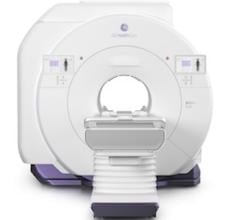September 25, 2007 - According to a study published in the October issue of Radiology, researchers using functional magnetic resonance imaging (fMRI) have found a new marker that may aid in early diagnosis of Alzheimer’s disease.
“The findings of this study implicate a potential functional, rather than structural, brain marker—separate from atrophy—that may help enhance diagnosis and treatment monitoring of Alzheimer’s patients,” said the study’s lead author, Jeffrey R. Petrella, M.D., associate professor of radiology at Duke University Medical Center in Durham, N.C.
Among the earliest known changes to the brain in Alzheimer’s disease are episodic memory deficits and structural changes in the medial temporal lobe (MTL). For the study, Dr. Petrella and colleagues set out to identify brain regions in which changes in activation took place during a memory task and to correlate these changes with the degree of memory impairment present in patients with Alzheimer’s disease or mild cognitive impairment.
The researchers studied 13 patients with mild Alzheimer’s disease, 34 patients with mild cognitive impairment and 28 healthy controls. The study group contained 37 men and 38 women with a mean age of 72.9 years. After completing standard neuropsychological testing, the study participants were monitored with fMRI while performing a face-name associative memory task.
While some areas of the brain activate, or turn on their activity, when a person tries to remember something, other areas deactivate, or suppress their activity. Results from this study showed that along the spectrum from healthy people at low risk, to people with mild memory problems, to patients with Alzheimer’s disease, there was increasingly impaired activation in the MTL, an area of the brain associated with episodic memory that normally turns on during a memory task. More surprising, however, was increasingly impaired deactivation in the posteromedial cortices (PMC), an area recently implicated with personal memory that normally suppresses its activity during a memory task. The magnitude of deactivation in the PMC was closely related to the level of memory impairment in the patients and significantly correlated with their neuropsychological testing scores.
While previous studies have suggested that MTL activation may be a possible marker of Alzheimer’s, based on the findings, Dr. Petrella and colleagues concluded that, compared to activation in the MTL, deactivation in the PMC may represent a more sensitive marker of early Alzheimer’s disease.
For more information: RSNA.org/radiologyjnl


 February 20, 2026
February 20, 2026 









